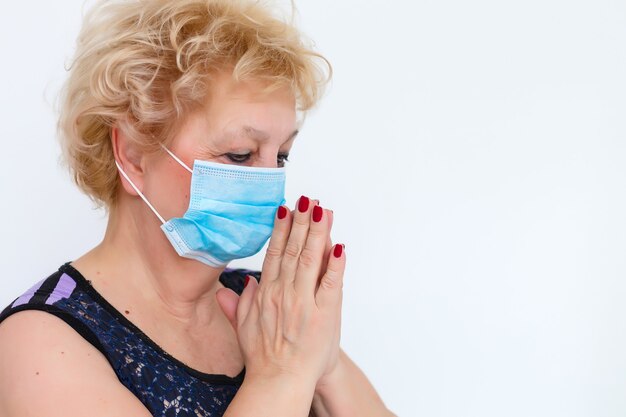Is It Pneumonia or Bronchitis? How to Tell the Difference and What to Do Next
Feeling under the weather with a persistent cough and wondering if it's something more serious? It’s not uncommon to mistake pneumonia for bronchitis or vice versa, as both conditions can present with similar symptoms. Understanding the difference is crucial for managing your health effectively. Here, we'll dive into the nuances of both pneumonia and bronchitis, helping you decipher which might be affecting you and what steps you can take next.
Understanding the Basics: Pneumonia vs. Bronchitis
What is Pneumonia?
Pneumonia is an infection that inflames the air sacs in one or both lungs. These air sacs may fill with fluid or pus, causing a cough with phlegm or pus, fever, chills, and difficulty breathing. A variety of organisms, including bacteria, viruses, and fungi, can cause pneumonia.
Key Symptoms of Pneumonia:
- High fever, often with chills
- Deep cough, often producing thick phlegm
- Shortness of breath
- Chest pain, more acute with breathing or coughing
- Fatigue and muscle pain
What is Bronchitis?
Bronchitis is the inflammation of the lining of your bronchial tubes, which carry air to and from your lungs. People with bronchitis often cough up thickened mucus, which can be discolored. Bronchitis may be acute (short-lived) or chronic (long-lasting).
Key Symptoms of Bronchitis:
- Persistent cough
- Production of mucus, which can be clear, white, yellowish-gray, or green
- Fatigue
- Slight fever and chills
- Shortness of breath or wheezing
Main Distinctions
While both conditions involve inflammation, pneumonia affects the lungs' air sacs, whereas bronchitis affects the bronchial tubes. Pneumonia is often more serious and requires more immediate medical attention.
Digging Deeper: Causes and Risk Factors
Causes
- Pneumonia is typically caused by bacteria such as Streptococcus pneumoniae, viruses like influenza and respiratory syncytial virus (RSV), and less commonly by fungi.
- Bronchitis can develop from the same viruses that cause cold and flu, with cigarette smoking being a significant cause for chronic bronchitis.
Risk Factors
- Age: Both conditions are more severe in young children and older adults.
- Smoking: Increases the risk of both bronchitis and pneumonia, damaging respiratory defenses.
- Chronic Conditions: Asthma, COPD, or heart disease heighten vulnerability.
- Immune System Issues: A compromised immune system can lead to more severe infections.
Symptoms and Severity: When to Seek Medical Attention
Both pneumonia and bronchitis can start with similar symptoms, like coughing and general fatigue, but the severity usually differs:
- Mild symptoms often subside on their own, particularly in bronchitis, which may just require rest and increased fluid intake.
- Worsening symptoms like high fever, severe chest pain, confusion (in older adults), and deep, labored breathing should prompt immediate medical consultation.
Diagnostic Steps: What to Expect at the Doctor's Office
Medical Examination
When you visit a healthcare provider, they will typically:
- Listen to your lungs: With a stethoscope to identify abnormal sounds like wheezing or crackling.
- Check vital signs: Including breathing rate, temperature, and oxygen levels.
Tests for Confirmation
- Chest X-ray: To see the state of the lungs and confirm pneumonia.
- Sputum Test: To analyze mucus to identify the cause of the infection.
- Blood Tests: To check for elevated white blood cells which indicate infection.
Home Care and Lifestyle Adjustments
Self-care Tips
Whether dealing with bronchitis or pneumonia, certain home care strategies can ease your recovery:
- Rest: Crucial for your body to fight off infection.
- Hydration: Keeping fluids up helps thin mucus for easier expulsion.
- Humidify: A humidifier can ease breathing problems in dry air.
- Medications: Over-the-counter medications may relieve symptoms as advised by your healthcare provider.
Preventive Measures
- Vaccination: Get vaccinated for flu and pneumonia to reduce risk.
- Hygiene: Regular handwashing and avoiding contact with sick individuals are key protective measures.
- No smoking: Quitting smoking greatly reduces the risk of lung infections.
When to Return to the Doctor
If your symptoms persist beyond a week, worsen, or you develop significant difficulty in breathing, a follow-up with your doctor is crucial. Treatments may involve antibiotics for bacterial infections, though not all cases will require such interventions, especially viral origins of bronchitis.
The Psychological Impact: Understanding and Managing Emotional Strain
Dealing with respiratory illness can be stressful, affecting your mental health:
- Understand your limitations: Listen to your body and rest as needed.
- Seek support: Family or friends can offer practical help during recovery.
- Stay informed: Knowledge empowers peace of mind.
Recap: Making Sense of Your Symptoms and Steps Ahead
It's easy to see why pneumonia and bronchitis can be confused, but recognizing the symptoms and causes can aid in taking the right actions to manage your health effectively. Remember that this guide is informational—consulting a healthcare professional is essential for appropriate treatment.
Quick Reference Summary 📝
- Symptoms Check:
- Pneumonia: High fever, chest pain, productive cough.
- Bronchitis: Persistent cough, mucus production, mild fever.
- When to Seek Help:
- High fever, severe breathing issues, confusion.
- Diagnosis Tools:
- Chest X-ray, Sputum test.
- Home Care Tips:
- Rest, hydration, use of a humidifier.
- Preventive Measures:
- Vaccination, avoid smoking, regular hygiene.
- Emotional Health:
- Understand limits, seek support, stay informed.
By maintaining vigilance and understanding the subtleties of each condition, you can effectively navigate your symptoms and work towards recovery. 🌟

Related Articles
- a Typical Pneumonia
- Can a Cold Turn Into Pneumonia
- Can a Sinus Infection Turn Into Pneumonia
- Can Amoxicillin Cure Pneumonia
- Can Amoxicillin Treat Pneumonia
- Can Baby Oil Cause Pneumonia
- Can Bronchitis Turn Into Pneumonia
- Can Covid Turn Into Pneumonia
- Can Doxycycline Treat Pneumonia
- Can Flu Turn Into Pneumonia
